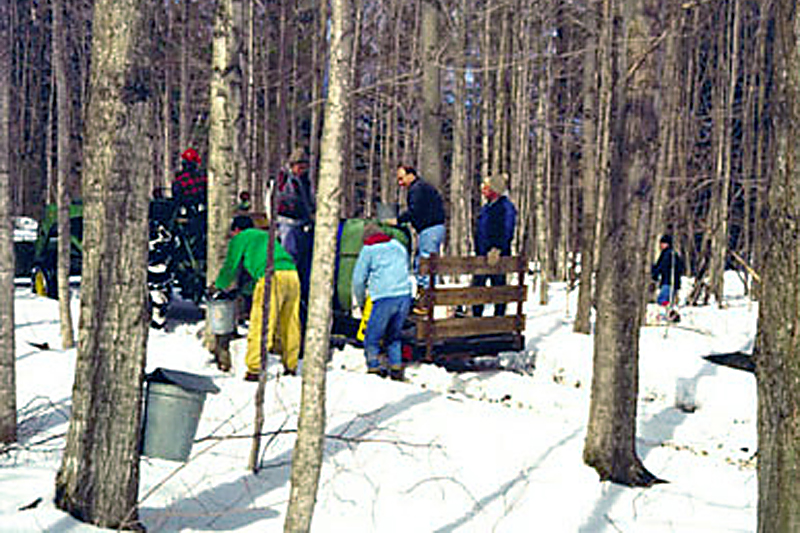
Work: Sharing in the Gift of Creation
In their work, as in their prayer, the Weston monks have evolved a style and a balance that seems best for them.
In the earliest years of the monastery, dairy farming was the primary means of support. Brothers did farmwork and, like the native Vermonters, made maple syrup in the spring.
As the community's experience evolved, however, the brothers have come to encourage one another to develop those gifts that are both expressive of their persons, as well as other-enriching.
This approach to work, based on the recognition of gifts for the good of all, rather than on mere economic necessity or duty, has given the community an economy that is diversified, stable, serving, co-creative, and personal.
Today, besides forestry, gardening, sugaring, and apple orchards, brothers are engaged in such work as woodworking, musical composition, weaving, ceramics, silverwork and enameling, and in the graphic arts.
Caring for the woodland and orchards around the monastery reflects the community's environmental concern.
Farming trees on the land provides fuel for heating the monastery buildings during the long Vermont winters, as well as seedlings for future generations.
Cultivating the land keeps brothers close to its rhythms, while its produce blesses the community table.
In addition, all brothers share alike in the common tasks of maintaining their home, and in the responsibilities of their community life.


